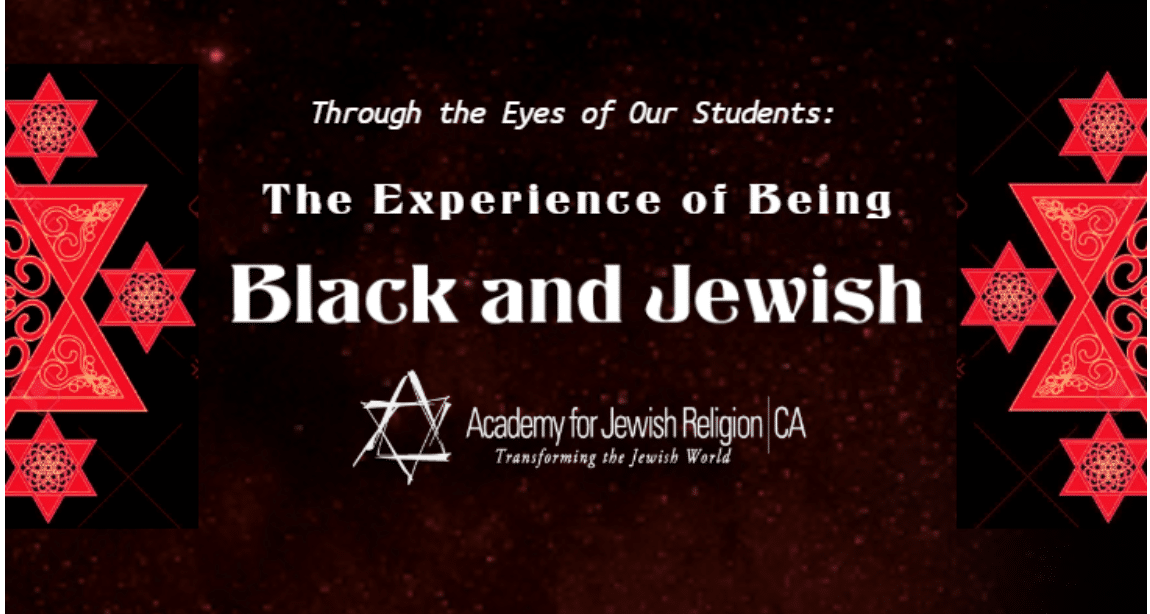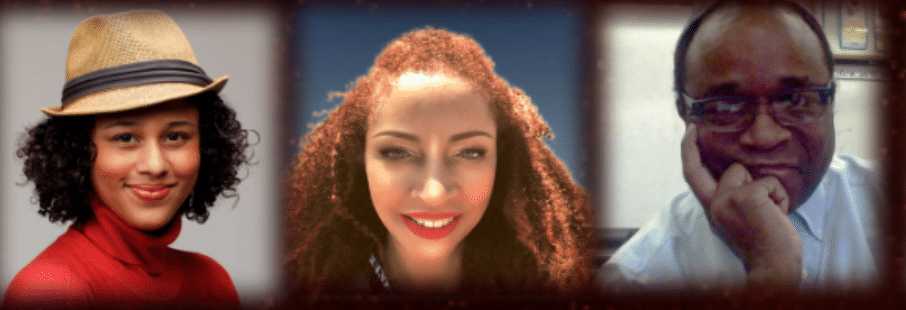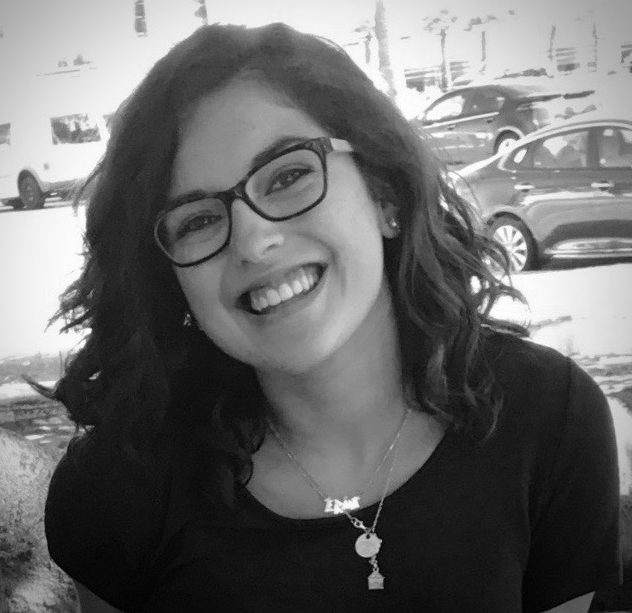
“I consider myself someone who’s been put in a lot of boxes. To the confusion of many people, no one box is satisfactory,” cantorial student Jenni Asher, told a group of approximately 74 attendees during an online panel on Aug. 6 titled “Through the Eyes of Our Students: The Experience of Being Black and Jewish.”
Also on the panel were rabbinical students Avigayil Levy-Yochan and Robin Harrison, which was moderated by Rabbi Mel Gottlieb, president of the Academy for Jewish Religion California (AJRCA) and dean of the academy’s rabbinic program. Gottlieb said the school’s responsibility was to “create a world of justice, love and opportunity for all.”
Asher, who is a second-year cantorial student at AJRCA, spent time in both the United States and the United Kingdom and said she experienced blatant and “color blind” racism wherever she went.
“In preparation for this event, I wrote down several pages of experiences with racism, many of which didn’t make it into the speech,” she said. “I asked my husband, in tears, how is it possible that I never noticed how many stories I have? And he said very simply and matter-of-factly, ‘Because people can be nice and racist’ and that’s a really hard truth for me.”
Asher added that there were uneducated students and strangers who passed her in class, and older members of her congregation who didn’t think she could be a congregant or prayer leader because she is Black. She also discovered that her friend’s parent wouldn’t let him be with Asher romantically because she is Black. She said she had trouble identifying especially within her own mixed-race family.

“I am seen as neither white nor Black, instead of both, which is truer,” she said. “As the daughter of a white mother with an entirely white family and a Black father with an entirely Black family, there were no mixed family members to model mixed race for me. The message I received from my families was either ‘This is how white people are’ or ‘This is how Black people are.’”
Asher said she hoped to find “the gorgeous in between,” quoting author Marra Gad’s book “The Color of Love: A Story of a Mixed-Race Jewish Girl” where she is able to live “in between the boxes.”
Harrison, who served as a teacher with the Los Angeles Unified School District for 25 years, said it all starts with proper education. A member of Temple Beth David in Westminster for nearly a decade and member of that synagogue’s board of directors, Harrison said he is strongly connected to his Judaism and fights against racism and anti-Semitism. Yet, people still come up to him surprised that a Black man can lead a minyan.
“This is an issue that needs to be addressed …. It starts from home where we are first and goes out from there. It really requires a great deal of openness and [honesty],” Harrison said. “This has to become a permanent part of who we are. Jews of Color are making themselves known more and more and it’s important to all of us to make them appear as if it is a part of everything we are … so that no one feels unwelcome.”
“These things may seem minor and insignificant to some people and if it was just one incident, it probably could be brushed off as that, but unfortunately it’s not. It’s more the norm than the exception.” — Avigayil Levy-Yochan
Levy-Yochan, too, has been questioned about being Jewish upon entering a synagogue. Born in Kingston, Jamaica, she spent her childhood in Crown Heights, N.Y. Her family chose New York because it had a strong Jewish population. However, she said they experienced so many forms of racism within their Jewish community — including being called derogatory names at Jewish day school — and inappropriate intimate questions about her identities, she often wondered if “social etiquette just drops out the window when someone different walks in. I call them micro-aggressions,” she said.
“I mean these things may seem minor and insignificant to some people and if it was just one incident it probably could be brushed off as that, but unfortunately it’s not. It’s more the norm than the exception,” Levy-Yochan continued. “All I want is to be welcomed with excitement as a newcomer who has a lot to offer the community.”
She said if people can get to know her, they won’t see the differences but only the similarities. While her experiences were more positive in Southern California when she moved here in 1995, she said she still noticed the lack of Jewish allyship.
“The silence is what hurt me more than anything else,” she said. “I expected my Jewish family to stand up for me and that’s not what happened. I just want our community to not be complacent. Look at your biases and actions, and lack of actions. It’s not always what you do but what you don’t do.”
Levy-Yochan also spoke about how her children are now able to identify racism. When her 9-year-old daughter wanted to see the protests happening in their neighborhood, Levy-Yochan was nervous. She said she asked her daughter why she felt compelled to attend and she simply said, “I had to stand up for my daddy and my brother because no one else is going to … because nobody looks like us.”
She is still fearful for her 25-year-old son, especially when he first learned to drive at 17. “I didn’t have just the talk on texting and driving,” she said. “I talked to my son about how to survive a traffic stop. How to make it home alive. So, with these past recent events [of African American men being the victims of police brutality], I just stood in front of the TV and I cried because I have a son and I don’t want to get that phone call.”
While Levy-Yochan said she can speak to other Black women and mothers about these issues, only one non-Black person in the Jewish community reached out to make sure she was OK.
“I know our country is deeply divided in many ways but I don’t want our community to be divided,” she said. “Our different cultures make up a beautiful mix of who we are. It makes us all wonderful.”























 More news and opinions than at a Shabbat dinner, right in your inbox.
More news and opinions than at a Shabbat dinner, right in your inbox.